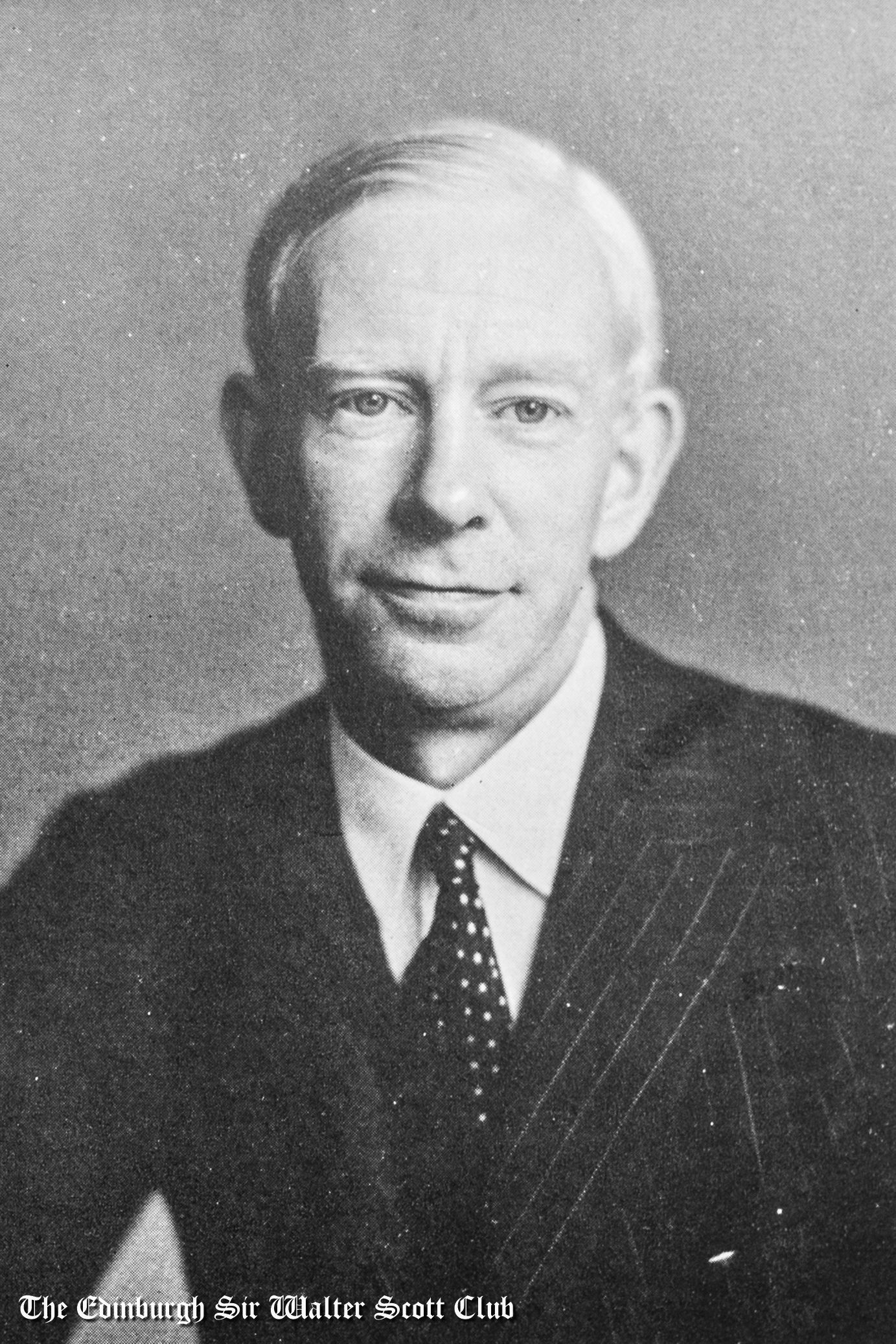1953
Our President in 1953/54 was:
Principal John Traill Christie
He proposed the Toast to Sir Walter at our 46th Annual Dinner on Friday 26th February 1954 in The North British Station Hotel
Download the [transcript] or read the [bulletin]
Summary of the Speech:
Principal Christie opens with warm gratitude for finally being able to attend and speak, having postponed his appearance due to a government commission in India. He reflects on the honour of speaking at the Club’s 60th anniversary, cleverly linking this to Waverley’s original subtitle, “‘Tis Sixty Years Since.”
Acknowledging the illustrious list of past speakers—statesmen, judges, bishops, authors, soldiers—Christie modestly places himself as a teacher and don with no such worldly claim. Yet, like Jeanie Deans in The Heart of Midlothian, he presents his own right: a lifelong veneration of Scott, whom he loves both as a man and a novelist. His personal connection runs deep—his father cherished Scott’s work, and his great-grandfather Jonathan Christie had been a close friend of Lockhart and fought in a duel on Lockhart’s behalf.
Christie devotes the bulk of his address to Scott’s treatment of kings and queens, proposing that Scott excels when portraying sovereigns not merely in grandeur, but as human figures touched by humour, fallibility, and loyalty. He draws comparisons between Scott and Shakespeare, often suggesting Scott surpasses the Bard in rendering the lives of ordinary people.
Christie considers many of Scott’s royal characters:
- Richard the Lionheart – boyish and impulsive.
- Saladin – depicted sympathetically, even heroically, despite being “the enemy.”
- David of Scotland – saintly but politically weak.
- Louis XI – a villain in Quentin Durward, yet admired for courage when trapped.
- Louis XVI – shown with dignity in Life of Napoleon.
He praises Scott’s portrayals of English kings and queens, particularly Queen Elizabeth I in Kenilworth—a woman of strength, wit, and passion, shown both commanding and vulnerable. He also extols Scott’s The Abbot for its nuanced depiction of Mary, Queen of Scots, as a proud, intelligent, and tragic heroine—not romanticised, but vividly real.
The toast culminates in an extended and moving retelling of Jeanie Deans’ plea to Queen Caroline to spare her sister Effie’s life. Christie presents this as Scott’s finest portrayal of monarchy in action—where authority, empathy, and justice meet. The Queen is touched by Jeanie’s courage, and Christie calls the moment “eloquence,” rightly judged so by Her Majesty in the novel.
Notable and Interesting Points
- Personal lineage: Christie’s great-grandfather, Jonathan Christie, was Lockhart’s friend and participated in a famous duel—giving the speech a rare personal link to Scott’s immediate circle.
- Jeanie Deans: Used as a moral and emotional core of the toast, her story exemplifies Scott’s grasp of loyalty, justice, and feminine strength.
- Historical insight: The address shows rich literary analysis—Christie deftly balances literary criticism, character exploration, and historical resonance.
- Balanced view of monarchy: The speech celebrates Scott’s admiration for monarchy, while acknowledging his ability to critique and humanise sovereigns.
- Comparison with other authors: Scott is compared to Shakespeare (favourably in some aspects), Dickens, Thackeray, and George Eliot, often highlighting Scott’s moral seriousness and lack of cynicism.
Download the [transcript] or read the [bulletin]

Subsidiary Toasts
The toasts of “The Queen” and “The Royal Family” were duly honoured.
Thereafter Mr John Cameron, D.S.C., LL.D., Q.C., F.R.S.E., proposed the toast of “The Imperial Forces,” to which Capt. R. B. Honeywill, R.N., replied.
“The City of Edinburgh” was proposed by the Rev. Adam Burnet, D.D.; and replied to by Bailie Tom Curr.
The health of the Chairman was proposed by The Right Rev. K. C. H. Warner, Bishop of Edinburgh.


